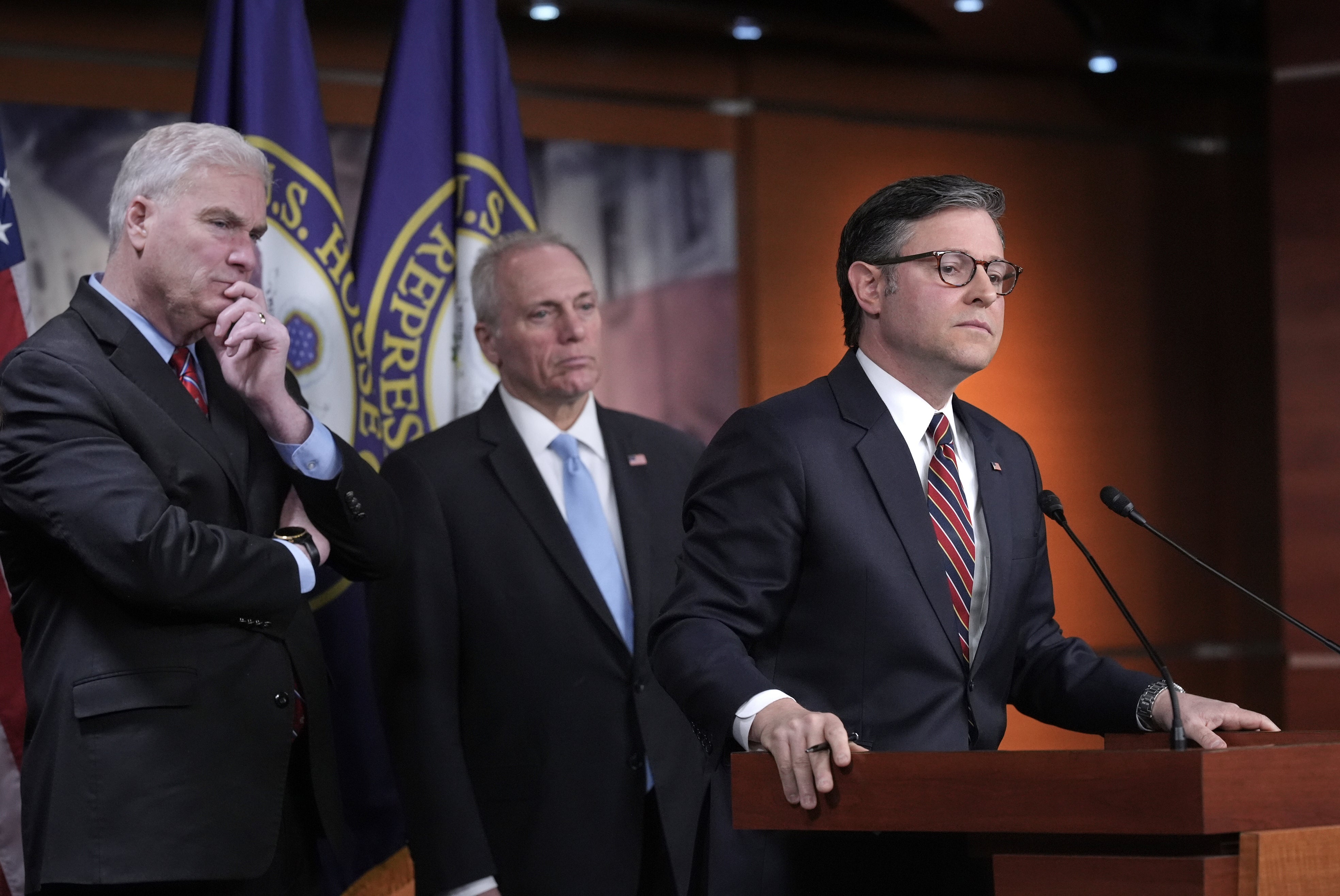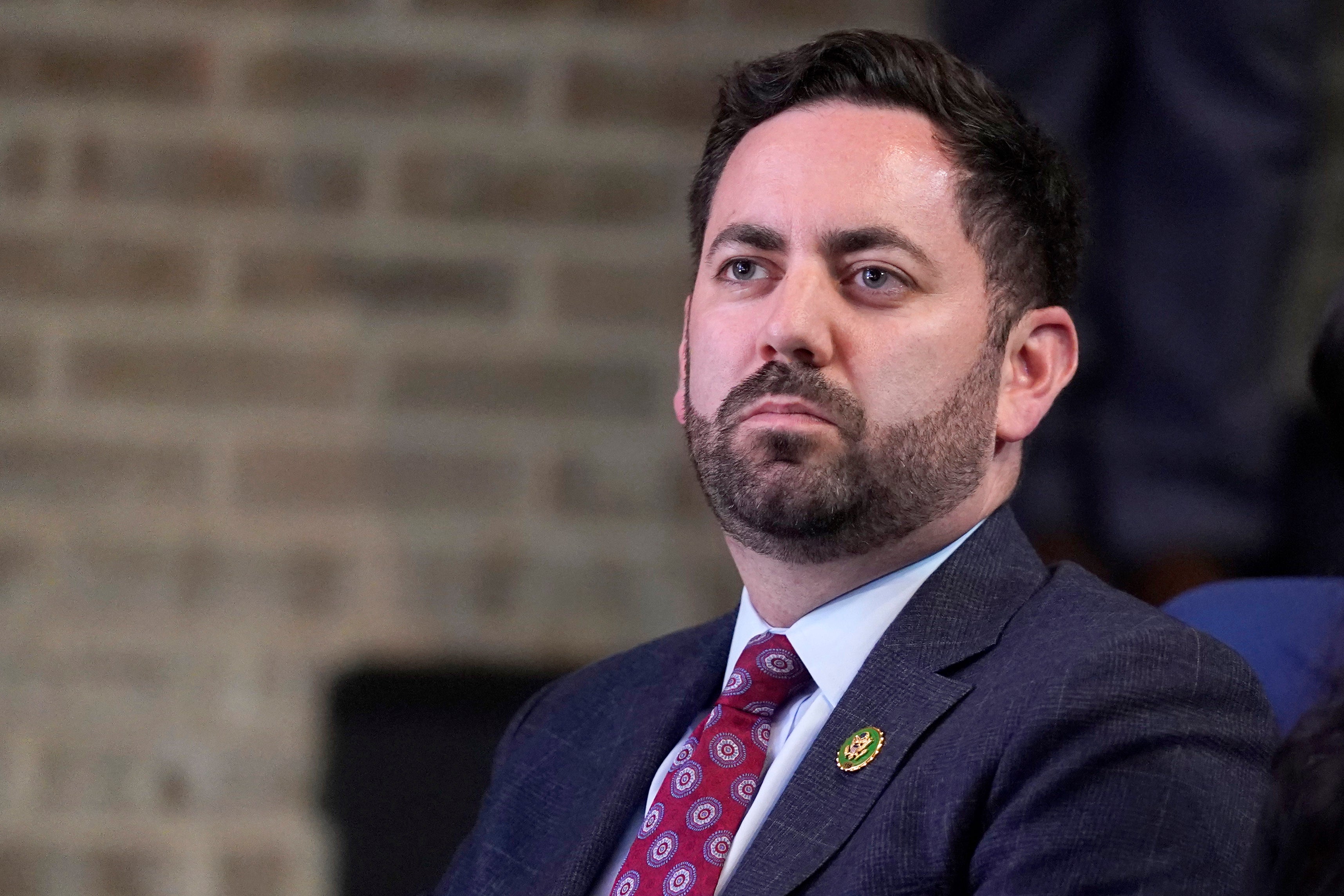ARTICLE AD BOX
Republicans officially reached the hard part of the effort to pass a budget plan addressing several of President Donald Trump’s top priorities this week.
In the House of Representatives, markups took place on Tuesday for two of the main parts of the “big beautiful bill” Trump wants Congress to pass as one massive package. The Energy and Commerce Committee’s bill, set to be a key part of that package, is home to the reforms to Medicaid Republicans are eyeing to bring home savings of nearly $1trn over a decade — reforms that include work requirements, state eligibility verification measures, and limits on medical provider taxes at the state level.
An estimate from the Congressional Budget Office last week found that millions would lose Medicaid eligibility under the GOP plan, with many unable to afford plans on the private market.
On the Ways and Means Committee, lawmakers met Tuesday to discuss the tax portion of the legislation. Republicans are hoping to extend as much of the 2017 Tax Cuts and Jobs Act, which cut taxes for many Americans but disproportionately benefited households in the top 20 percent of income brackets.
A third committee, Agriculture, is also set to begin a late-night markup Tuesday evening.
Mike Johnson and John Thune have several big issues to keep in mind as they try to wrangle the GOP’s disparate caucuses and factions to push a key piece of Donald Trump’s agenda — and maybe the biggest piece of legislation to hit Congress this year — over the finish line.
As negotiations continue in the House, the Senate is looking on with tepid approval. Even as Republicans publicly cheer on the budget-crafting process, there are clear signs of fractures in the GOP coalition that may be very difficult to overcome.
Let’s take a look at some of the key groups Republican leaders will have to placate to deliver victory for the president:
Deficit hawks
Despite arguments to the contrary, Republicans have long eyed welfare programs and the American social safety net for cuts in their quest to drive down the nation’s budget deficit. That was clear earlier this year when the GOP budget framework called on the Energy and Commerce committee to find nearly $900m in cuts, nearly all of which would come from Medicaid.
Most of the intended savings are likely to come from Americans being kicked off the program — this is by design, as lawmakers who support reforms to the program say that the expansion of Medicaid under the Obama administration added millions to the program, whom Republicans say should be forced to buy healthcare on the private market.
Speaker Mike Johnson himself told Fox News in April: “We have to root out fraud, waste and abuse, we have to eliminate on, for example, on Medicaid who are not actually eligible to be there. Able-bodied workers, for example, young men, who are– who should never be on the program at all.”

Mike Lee, one of Congress’s most conservative members, was lamenting the lack of debt-slashing measures included in the legislative package on Monday. The GOP bill, as it stands, could add up to $52trn to the federal debt within three decades, the Congressional Budget Office found in April.
“A bill adding another $20 trillion in debt over ten years is not just ‘not perfect,’” the Utah senator tweeted. His remarks were re-tweeted by Chip Roy, one of his conservative colleagues in the House.
Medicaid champions
A coalition including some of the party’s more populist members, as well as representatives in swing seats, makes up the group of Republicans who are opposed to cuts on Medicaid.
Understanding the political liability of potentially throwing millions off of health insurance, this faction is warning that they’ll oppose any legislation with significant cuts to Medicaid benefits or eligibility. This faction, which includes Republicans like Josh Hawley in the Senate and members like Don Bacon and Nicole Maliotakis in the House, is willing to back smaller reforms including work requirements but have drawn a harder line on many of the reforms that would satisfy conservatives, like changes to federal Medicaid cost-sharing.
“There’s reasonable actions we can support like work requirements for able bodied adults without children and auditing the Medicaid list,” Bacon told Punchbowl News in April. “But there will not be the votes to cut Medicaid for those who need it or to the hospitals that we need to preserve.”
Notably, this faction supposedly includes Donald Trump, who in a May 4 interview with NBC News said he’d veto any bill that included significant cuts to the program.
The SALT caucus
A group of lawmakers from states with large urban centers like New York and California, the SALT Caucus includes members of both parties who want to see the cap on state and local tax (SALT) deductions raised or eliminated.
Right now, the federal limit on SALT deductions is set at $10,000. Mike Johnson, who is set to meet with members of the caucus Tuesday evening, is offering a cap of $30,000 for Americans on an income of $400,000 or less.

But a wide gulf remains, with Republican members of the caucus demanding a much higher number and refusing to tank the bill if their demands aren’t met.
“What negotiations?” asked caucus member Mike Lawler, a Republican from a New York swing district, when a reporter questioned him Tuesday on the state of talks. He fumed after the chair of the Ways and Means Committee, whose legislation will include SALT changes (if there are any), refused to negotiate with caucus members.
The Planned Parenthood defenders
The one constant rule of the Republican House and Senate caucuses? You can’t make everyone happy.
Stripping federal funds from Planned Parenthood, the nation’s leading abortion provider, is immensely popular with Republicans. Most of them.
But if the Speaker of the House didn’t have enough to worry about this week, a group of three House lawmakers — Mike Lawler, Brian Fitzpatrick and Jen Kiggans — reportedly came forward to threaten votes against the final bill if it included any language stripping the organization of funding. In addition to abortion care, Planned Parenthood provides family planning services and other healthcare, often serving low-income communities.
Their votes alone would be nearly enough to sink the bill.
Finally, there’s Thomas Massie.
With a 220-213 margin in the House, Mike Johnson can only afford three defections among his party — a fourth, given unified Democratic opposition to the budget plan, will cause it to fail.

Enter the Republican congressman from Kentucky’s 4th district. The House’s staunchest budget hawk and its most libertarian member, Massie practically deserves his own category.
The only reason he doesn't: there’s basically nothing Mike Johnson and the GOP could do to win his vote, short of tearing up the legislation and starting over with a massively scaled-down federal budget that rolls back spending increases for the military and would never pass the House, let alone the Senate. Thanks to Massie, Johnson’s margin for defections is just two — on this issue, he’s guaranteed to vote with the Democrats.
Johnson and Thune’s marathon is now in its trickiest stage. With the Senate leader in his first term as leader of the chamber and Johnson managing the most unruly GOP House caucus in memory, the biggest test of the year for the Republican Party and Donald Trump’s political strength is quickly approaching.









 English (US) ·
English (US) ·